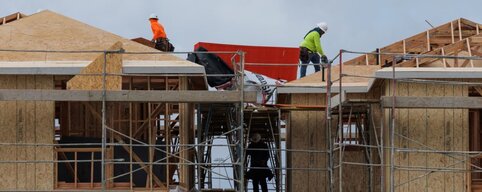

The Coalition for Fair Trade in Hardwood Plywood has initiated a significant campaign to impose antidumping and countervailing duties on plywood imports from Vietnam, Indonesia, and China. This proposal comes in response to alarming dumping margins that highlight competitive imbalances allegedly due to foreign subsidies that enable these countries to sell plywood products at prices below market value, leading to significant harm to U.S. hardwood plywood producers.
Data from recent trade statistics underscore the urgency of this situation for U.S. manufacturers, who are grappling with a massive influx of imported plywood. This surge has been particularly pronounced from Vietnam and Indonesia, creating a highly competitive environment that threatens domestic industries. Even though China’s share has markedly decreased due to previous tariffs, the competitive pressure has shifted its focus to the remaining two countries.
One of the central elements of the petitions is the specific dumping margins cited: up to 134% for Vietnam, 203% for Indonesia, and a staggering 474% for China. Such figures are deeply concerning to the domestic industry, conveying a critical need for remedial actions through protective tariff measures.
The American Furniture Association (AFA) has thrown its support behind the Coalition’s efforts, advocating for the imposition of tariffs as a necessary step to safeguard domestic production and employment. According to the AFA, these imports, bolstered by foreign subsidies, create an unfair pricing environment that U.S. manufacturers struggle to compete with, placing local jobs and industries at significant risk.
Despite previous tariffs reducing China’s market dominance, the vacuum has been quickly filled by Vietnamese exporters. Data shows Vietnam now holds the largest share of U.S. plywood imports, a development that has prompted calls for a recalibration of trade policies to restore a competitive equilibrium. The current scenario paints a complex picture, with rising import volumes from Vietnam spurring concern and necessitating decisive protective measures.
For the U.S. hardwood plywood industry, the proposed tariffs represent a strategic intervention to alleviate the negative impacts on local workers and businesses. Industry representatives argue that restoring competitive balance through protective tariffs is essential not just for immediate relief but also for the long-term sustainability of domestic production capabilities. Such efforts align with broader governmental directives aimed at securing fair competition and mitigating external trade impacts.
This trade policy issue raises key questions about the role of government in managing trade relations to ensure fair competition and protect domestic interests. The American market's health hinges on maintaining a level playing field where U.S. manufacturers can compete on equal terms, without the distorting effects of subsidized foreign products.
In this context, the forthcoming decisions regarding the imposition of additional tariffs will be closely monitored by stakeholders across the industry. These measures are perceived not just as protective actions but as necessary steps to prevent further detriment to the U.S. plywood industry, ensuring the preservation of jobs and industrial capacity within the nation.



